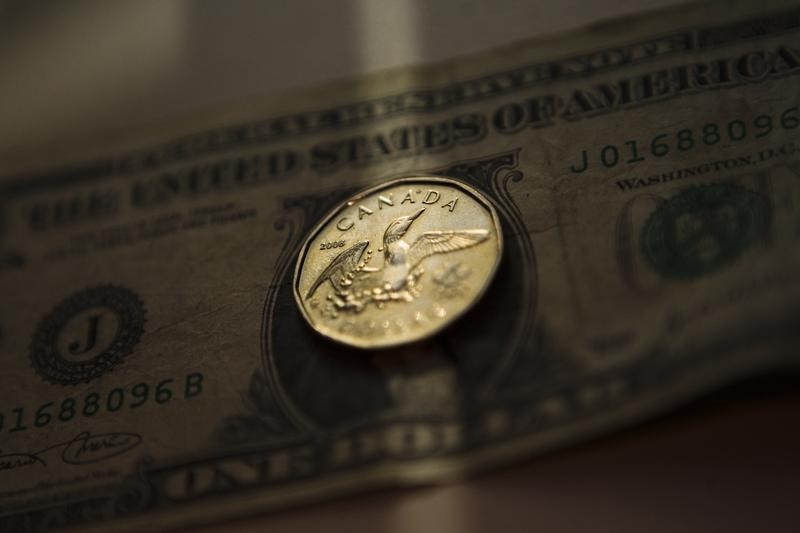Investing.com - The U.S. dollar was almost unchanged against its Canadian counterpart on Monday, after disappointing U.S. personal spending data, although a downbeat report on Canada's current account dented demand for the local currency.
USD/CAD hit 1.2477 during early U.S. trade, the session low; the pair subsequently consolidated at 1.2514.
The pair was likely to find support at 1.2388, the low of February 26 and resistance at 1.2624, the high of February 23.
In a report, the Commerce Department said that U.S. personal spending fell 0.2% in January, worse than expectations for a decline of 0.1%. Personal spending dropped 0.3% in December.
The report also showed personal income rose 0.3% in January, below forecasts for a 0.4% increase and after gaining 0.3% in December.
Meanwhile, in Canada, official data showed that the country's current account deficit C$13.9 billion in the fourth quarter of 2014 from C$9.6 billion in the third quarter, whose figure was revised from a previously estimated deficit of C$8.4 billion.
Analysts had expected the current account deficit to narrow to C$7.4 billion in the last quarter.
The loonie was lower against the euro, with EUR/CAD rising 0.32% to 1.4054.
In the euro zone, data showed that the annual rate of consumer inflation declined 0.3% in February, better than forecasts for a drop of 0.4%, following a 0.6% decline the previous month.
Core inflation, which strips out food and energy costs, was unchanged from January at 0.6%.
Another report showed that the euro zone’s unemployment rate fell to 11.2% in January, down from 11.3% in December. It was the lowest level since April 2012.
Later in the day, the Institute of Supply Management was to report on U.S. manufacturing activity.
